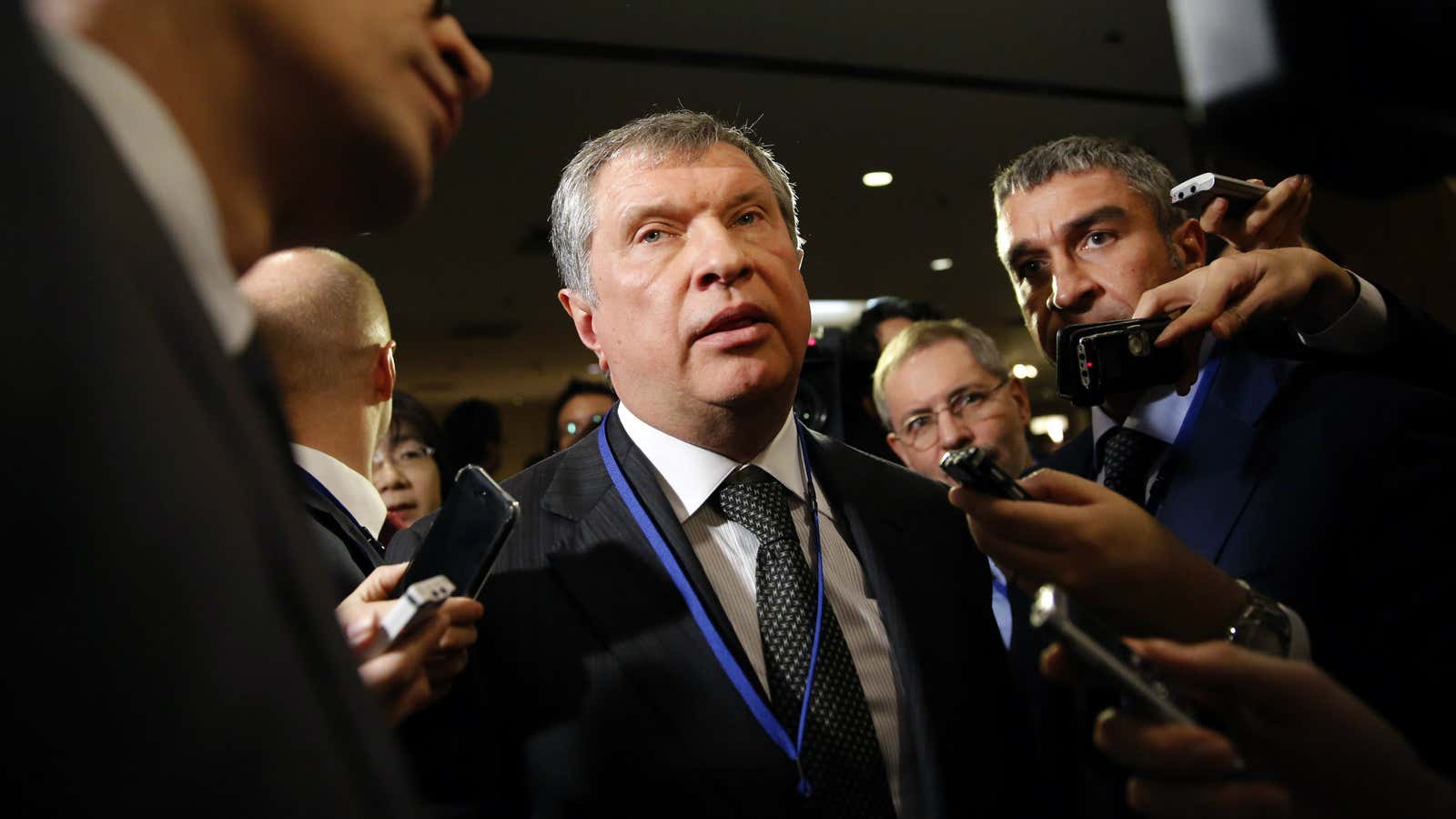The market and analysts are pummeling the Obama administration for what they see as another weak and unfocused set of sanctions against Russia over its destabilization and annexation of Ukraine. Yet again, these analysts say, the White House has targeted a slender few individuals close to president Vladimir Putin while steering clear of a tougher, broader attack against an entire industrial sector.
Oddly, the sanctions announced today do just that—they attack oil, by far Russia’s largest industry.
The main target is Igor Sechin, Russia’s most powerful oilman as chairman of Rosneft, the world’s largest publicly listed oil company by production. One of Putin’s most loyal lieutenants, Sechin directly negotiated significant oil and gas deals in recent years with ExxonMobil, Shell and Norway’s Statoil. Last year, he struck a deal that resulted in BP owning almost 20% of Rosneft.
With these four western oil majors, Sechin has mapped out Russia’s next generation of oil production in shale and the Arctic, which are meant to bolster the country’s economy starting in the late 2020s and for decades thereafter.
Of 17 companies targeted in the sanctions, 15 are either controlled by or linked to Gennady Timchenko, an oil and gas billionaire friend of Putin’s. And three of them are associated with Stroytransgaz, a natural gas pipeline firm thought to be a vehicle through which profits are funneled from Gazprom to powerful Russian insiders. Stroytransgaz is controlled by both Timchenko and the brothers Arkady and Boris Rotenberg.
By striking these individuals and companies, the US attacked the heart of the oil industry, and it appeared to be sending a clear message to three important actors–Russia’s oil oligarchs, the western oil and gas industry, and Putin himself. The message was that a future round of sanctions–if they are needed–may directly strike at Russia’s ability to produce oil. It may be awhile before such sanctions come, and if they are imposed, much longer before they have direct impact. But, by threatening Russia’s largest industry, the message is an increasingly broad assault.




